Pacific Guidelines for the Development of National Quality Frameworks for ECCE
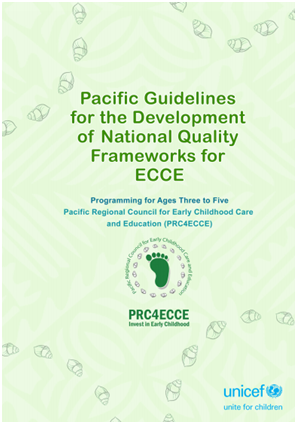

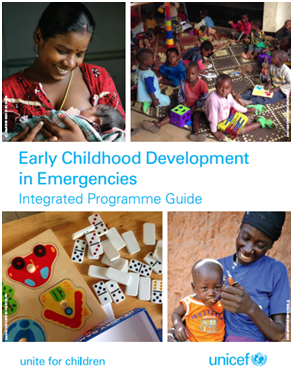
The goal of the integrated programme guide for ECD in emergencies is to guide the humanitarian community in designing a response that takes into account the needs of young children. This programme guide can be used in times of emergency preparedness, response, and early recovery, and for building resilience. It is designed for use by UNICEF Programme Officers as well as for representatives from other UN agencies, NGOs and government divisions responsible for designing, implementing, monitoring and evaluating ECD interventions.
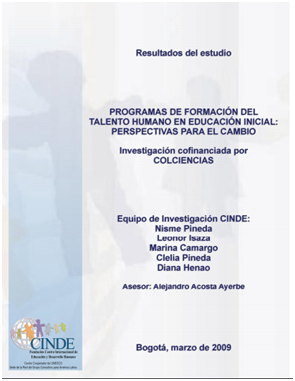
This document is an integral part of the set of technical references of the Strategy “De Cero A Siempre”, which seeks to guide those who have responsibilities in the Comprehensive Early Childhood Care (AIPI) about the promotion of child development through the lenses of protecting children’s rights. In this sense, these Guidelines are in line with other Guidelines published under the strategy and aims at informing the qualification of all those who work in the field of early childhood. The document is understood as a qualification of the workforce in the field of education that aims, on the one hand, to broaden, deepen and renew the knowledge previously acquired by people who work -directly or indirectly- with early childhood and on the other hand, to improve early childhood care practices in such a way that they aim at the holistic development of children aged 0 to 6 years. The Guidelines are accompanied by the operative guide and the monitoring and evaluation proposal.
Authors: Year of Publication:2013
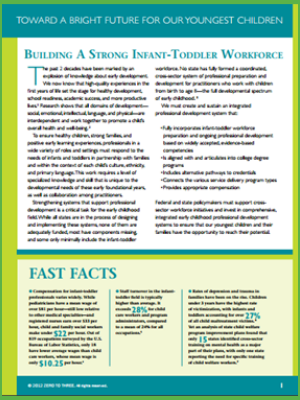
This report focuses on strengthening systems that support professional development as a critical task for the early childhood development field. The report advocates for an integrated professional development system that:
The report defines an early childhood professional development system that includes the infant-toddler workforce, highlights the six essential policy areas that need to be addressed and shares policy recommendations in context.
Authors: Year of Publication:2012
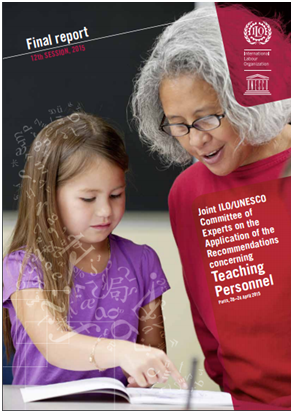
This report summarizes the analysis of major issues affecting the status of teaching personnel worldwide at all levels of education by the 12th Session of the Joint ILO–UNESCO Committee of Experts on the Application of the Recommendations concerning Teaching Personnel (the Joint Committee), held in Paris on 20–24 April 2015. Composed of independent education experts from around the world, the 12th Session of the Joint Committee examined a number of urgent issues affecting teaching personnel, including quality teaching in higher education, professionalization of early childhood education personnel, changing employment relationships in teaching, the impact of digital technologies, and social dialogue. The Joint Committee also examined a number of allegations from teacher unions regarding the application of the Recommendations. The report of this session contains recommendations to the Governing Body of the ILO and to the Executive Board of UNESCO, and through them to governments, employers’ and workers’ organizations of their member States, on how to improve the condition of the teaching profession within their respective mandates, using the two Recommendations as guidelines. The recommendations of the Joint Committee are nonbinding, being intended to guide the actions of national authorities, employers’ and workers’ organizations and other education stakeholders.
Authors: Year of Publication:2015
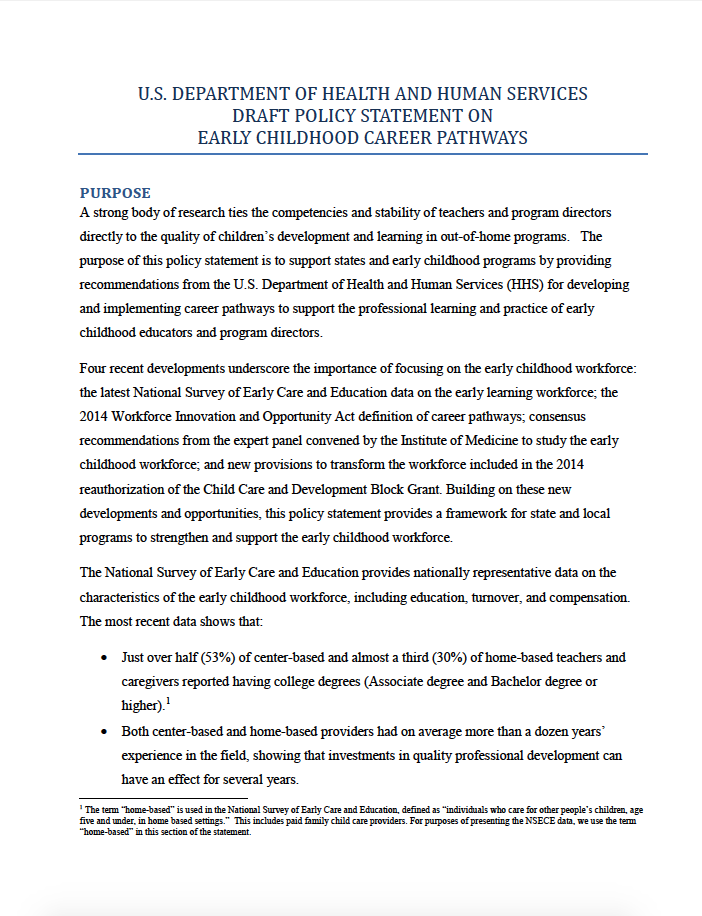
Workforce Development Framework (WDF) aims to support states and early childhood programs by providing recommendations from the U.S. Department of Health and Human Services for developing and implementing career pathways to support the professional learning and practice of early childhood educators and program directors.
This statement aims to:
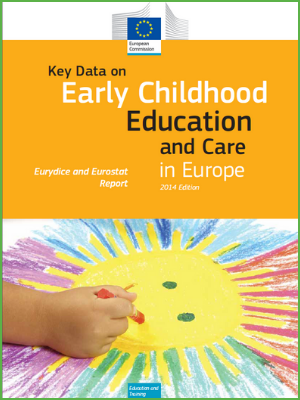
Key Data on Early Childhood Education and Care in Europe aims to provide insights into what constitutes high quality early childhood education and care through policy-driven and internationally comparable indicators.
This European Commission report, published jointly by Eurydice and Eurostat, combines statistical data and system level information to describe the structure, organization and funding of early childhood education and care in Europe.
The report covers issues essential to policymakers, such as, access to ECEC, governance, quality assurance, affordability, professionalization of staff, leadership, parent involvement and measures to support disadvantaged children.